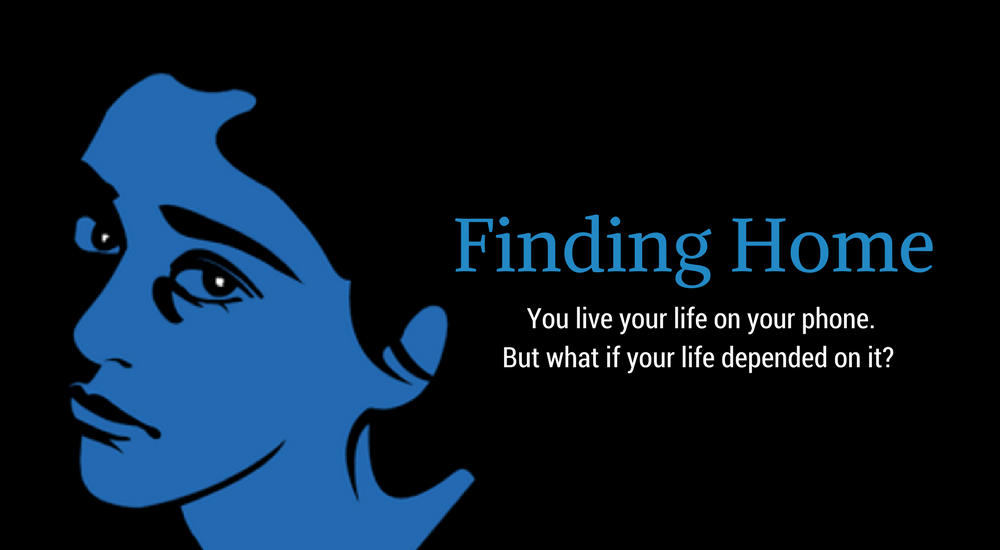To state the obvious for a second: the life of a refugee isn’t easy.
To be violently torn from your home, thrown into unknown environments with no rights and almost nothing to your name is almost unimaginable, but for most of us, our thoughts on the subject ends there.
And in fact, some of us even look to these refugees with distaste, seeing them as lower class citizens who have nothing to offer. Others still, while sympathetic of these refugees’ issues, still side-eye them, blaming them for increased crime rates or the lowering of living standards in a certain area.
Refugees and the people trying to help them face many uphill battles in their journey; one of them being the impression that we have formed of them, equating them with illegal immigrants.
The App To Take That First Step

As one of UNHCR‘s efforts to challenge this perspective, an app called ‘Finding Home‘ has been released on Android, with an iOS version coming soon.
Similar to popular horror game Sara Is Missing, Finding Home takes over the interface of your entire phone to put you in the shoes of 16-year-old refugee Khatijah (or Kat, for friends and family) trying to rebuild her life in an unknown land with nothing but a phone and a missing brother she needs to find.
As of February 2017, about 149,500 refugees and asylum-seekers are registered in UNHCR in Malaysia.
Often called the world’s most persecuted minority, many Rohingyas take to flocking Muslim-majority Malaysia in hopes of a better life, but find a unique blend of difficulties to go with their struggles. Kat’s story was written based on true stories told by Rohingya refugees and the UNHCR workers that deal with their situation on a daily basis.
They have no legal job opportunities, no chance for a proper education, and live in fear of being arrested for immigration offences.
A follow-up to another refugee-based game by the UNHCR My Life As A Refugee, you follow Kat’s journey from Myanmar to Malaysia, finding villains in raids, unscrupulous adults, mistrustful fellow-refugees, and general situation of being someone with no legal status, and very few helping hands to lean on apart from her own strong refugee community looking out for each other.
Very Few Options

“Kat do you hear me? Don’t come anymore, it’s not safe.”
You’re able to browse through her gallery and previous chats to get a glimpse of Kat’s life before the crisis in her own country got bad enough to force her away. You catch glimpses of her father’s stoicism and patriotism about staying home for the love of their country and his later change of heart once he realises the life that he would be subjecting his children to.
You see Kat’s playful personality and how much she cares for her brother Ish, based on their pictures and the small snapshots of conversation with him. To a certain extent, you see what they have to leave behind to hope for a better chance of survival.

What is slightly different from other similar apps are the continuous timeskips that occur, from a few hours to even a few weeks. This is so that you, the player, gets a more blow-by-blow image of what happens to a refugee once they decide to leave home. It can be a little jarring, but I did get used to it after delving into the game for some time.
That, and the context given sinks you deeper into the storyline that mostly happens over a WhatsApp-inspired chat app. The characters send over videos and audio files of each other through this chat app, and they all look and sound quite realistic, enough to sink you deeper into the immersion of the simulation.
However, like most similar apps or games, while Finding Home does offer some choices in the potential chat options Kat has to talk to the different people in her life, they lead you through the same storyline. Your own contributions to the chat options Kat has seemingly does not impact the direction of the plot.

“You don’t ignore me girl. I’m going to find you. I’m not done with you yet” — quote from Finding Home.
This, perhaps mirrors Kat’s own lack of options once she makes her way to Malaysia, where all she can do is ask for help from her own refugee community who, while they want to help and have strong ties to each other, have very little to offer themselves.
All by her lonesome, she is left to naively trust and hope on despicable figures looking to take advantage of people in her situation.

(Spoilers: this involves a restaurant owner who does not pay his refugee workers for months of work, and a homeowner who would house Kat for free if she, an underaged girl, would sleep with him at night. And since they have no status in this country, they have very few people that they can turn to when faced with these kinds of situations)
The situations described in the simulation app are not new or unthinkable to us, but when you are able to put a face to the struggles that these refugees may face, it does tug on a few heartstrings, and offers a blow-by-blow perspective on issues that too many of us take for-granted.
The UNHCR’s Efforts

Of course, it’s not all doom and gloom in Finding Home. Kat finds friends in a fellow-refugee Sara, and a helpful community ‘elder’ who are both able to help out here and there based on their connection to the UNHCR offices in Malaysia. She also finds some solace in a fellow village-mate who upon hearing of Kat’s situation, is keen on helping despite her own struggles.
While going through Kat’s daily life, we are also given little snapshots of what the organisation’s efforts are, and what they try to accomplish beyond what is expected. For example, it was through playing through this simulation that I discovered that UNHCR runs an arrest hotline to help release refugees from wrongful imprisonment with illegal immigrants.
And while the app also gives some context into the Rohingya’s troubles, the chats and pictures were quite careful to glance through any damning statements about the current socio-political situation surrounding the Rohingya situation in Myanmar.
The Point Is

Once we as Malaysians are better able to understand and appreciate their struggles, the UNHCR provides links to how we can help. This includes the opportunity to make donations, volunteer time or even just to raise awareness by learning more about the issue, and sharing the simulation on social media.
This simulation may not be for everyone, but it is a very current take by the UNHCR in their efforts to educate and bring awareness to refugee conflicts in Malaysia, be it under law, or even just their basic necessities.
And if these efforts will bring more attention and outrage into the human rights issues plaguing our fellow man with no nation, even a little bit, then this app has served its purpose. If the Ice Bucket Challenge can do it, why not Finding Home?
You can watch the full trailer to the game here:
Currently only available for Android phones, you can download the simulator here to experience it for yourself.









